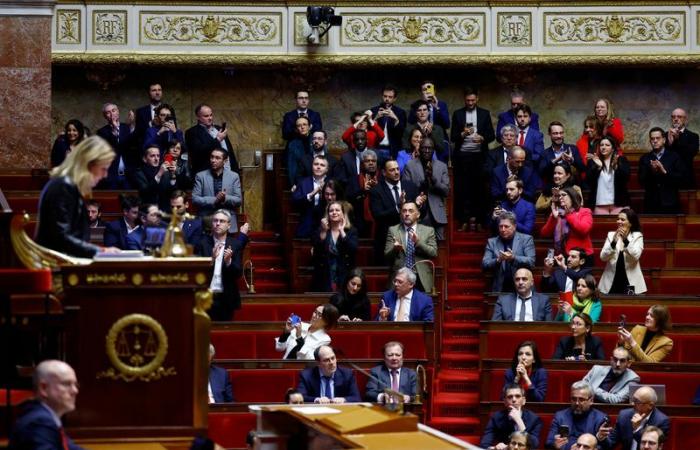The French government collapsed on Wednesday after losing a vote of no confidence, plunging the euro zone's second-largest economy into a political crisis and threatening its ability to legislate and repair its precarious finances.
This is the first time since 1962 that the French government has been forced to resign following a vote of no confidence.
The euro reacted little immediately, trading around $1.0517 against the dollar, but falling against other European currencies, such as the Swiss franc and the pound.
Futures on French stocks and bonds rose slightly.
The country's bonds and stocks have come under selling pressure due to the escalating crisis in recent days, with the closely watched gap, or spread, between French and German 10-year bond yields widening up 90 basis points, its biggest since the height of the euro zone debt crisis in 2012.
COMMENTS:
JAMES ATHEY, FIXED INCOME MANAGER, MARLBOROUGH, LONDON:
“It was not an unexpected event.”
“But he’s going to harass investors until we have clarity, and we can’t have clarity until July.”
“Austerity is preferable from the OAT investor's perspective, but it is likely to reduce support for center parties, reducing the chances of a market-friendly outcome in next summer's elections.
“There is nothing likely to worsen the short-term outlook and (French bond risk premiums) should remain within the range they have reached.
“As we enter the new year and people take a fresh look, the range may widen.
MATHIEU SAVARY, CHIEF INVESTMENT STRATEGIST, BCA RESEARCH, MONTREAL :
“Paralysis will remain the dominant feature of French politics over the next two years, meaning that a fundamental attack on debt is unlikely. We will therefore remain in an environment of volatility around bonds French.
This means to me that there is not yet enough protection in the current level of spreads. This is why I do not recommend my clients to buy French bonds. I think Spanish bonds are more interesting.
If we move to 100 basis points in terms of spreads, based on my conversations with investors, it is likely that we will see a slight recovery in French bonds at this level, but of very short duration, it is not the end of work.
Whatever happens, we will remain in this “high spread and high volatility” situation. This is why I am not at all enthusiastic about French bonds.”
“The potential threat to France's credit rating is something that will keep investors at bay and prevent a significant narrowing (of the risk premium). Indeed, the chances of France being downgraded increase, as the “Policy paralysis means that any meaningful action, any meaningful measure to reduce the deficit, will be called into question.”
NICK REES, SENIOR FX MARKET ANALYST, MONEX EUROPE, LONDRES :
“I'm surprised the euro hasn't moved much. The French government has collapsed. It should be lower.”
“There are two great powers in Europe, France and Germany, both of which are emasculated at the moment.
“I don't think it's a good position to be in when (US President-elect Donald) Trump comes into office and is probably going to hit Europe with tariffs. I don't like that environment of risk and the euro should not like this risk environment. It should trade much lower.
“This was partly expected, but the markets have not yet realized that it is really bad.”
“This is a hard blow to sentiment in France and will be negative for growth.






